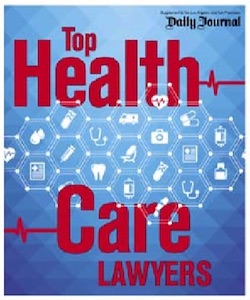When you take maternity leave, you need a financial strategy for coping with your temporary income loss. Often, this means combining any available resources, such as sick leave, savings, vacation pay, short-term disability benefits, and long-term disability coverage. The benefits often incorporate coverage waiting periods, benefit limits, exclusions, and disability conditions. Long before you begin your leave, you must ensure that you have adequate financial resources available when you need them.
Company sick pay plans don’t usually distinguish between pregnancy and other sicknesses. They pay a percentage of your income, and the benefit usually ends at approximately six weeks. That’s usually when an OBGYN says you’re capable of returning to your job after a normal delivery. If you develop an unexpected postnatal medical condition, your sick pay benefits usually decrease after a brief period. Short-term disability benefits end based on a designated time period in your company’s plan.
If you remain disabled, your employer-sponsored group long-term disability plan usually provides some of the income you need. To ensure that you have a continuous source of income, you must review your company plan before the need arises.
What About Family Leave?
Title 29 of the Family Medical Leave Act gives both women and men a federally mandated unpaid leave. The law authorizes 12 weeks for healing and bonding with your child. It also protects your job while you’re on leave. Unfortunately, the FMLA does nothing to fill the financial gap between available sick pay benefits, short-term disability benefits, and your return to paid work.
Currently, nine states and the District of Columbia have active or pending Paid Family Medical Leave legislation. In these states, women have additional income benefits during their maternity leaves.
Long-Term Disability And Your Maternity Leave
When you first realize you’re expecting a baby, you don’t often anticipate that you’ll need to use your long-term disability insurance. You expect a nine-month pregnancy, a normal delivery, and a gradual recovery. Sadly, unanticipated medical complications may occur.
If you’re 35 or over, your risk of developing some of these medical conditions increases:
- High blood pressure
- Preeclampsia and eclampsia
- Gestational diabetes
- Uterine rupture
- Cardiomyopathy
- Respiratory problems
- Embolism
- Hyperemesis gravidarum
- Need for C-Section
- Stillbirth
- Postpartum hemorrhage
- Infections or sepsis
- Low birth weight baby
- Perinatal depression (during or after pregnancy)
- Postpartum psychosis
Treatment for these and other pregnancy-related medical conditions often involves bed rest during pregnancy or extended recovery times after delivery. Longer recovery usually increases your disability period and exhausts your sick leave and short-term disability benefits. If you have coverage under an employer-sponsored long-term disability plan, you often qualify for an additional replacement income. It’s usually up to you to review your plan, confirm your coverage, and take steps to collect your benefits.
Pregnancy-Related Disabilities
Pregnancy isn’t a disability, but disabling conditions sometimes occur during pregnancy and after childbirth. The medical issues outlined above explain some conditions that sometimes prevent new mothers from resuming their occupations.
Existing medical issues increase your chances of developing a disabling condition.
- Epilepsy
- Asthma
- Multiple sclerosis
- High blood pressure
- Obesity (Body Mass Index over 30)
- Sickle cell disease
- Advanced maternal age
- Multiple pregnancies
- Smoking
- Substance and alcohol abuse
- Fibromyalgia
Pregnancy Complications Are Increasing
Blue Cross Blue Shield’s most recent Pregnancy Trends Report shows an increase in pregnancy-related complications among commercially insured women. The numbers reflect an overall increase for all new mothers.
Youthful and older mothers show the most significant uptick in adverse medical conditions.
- Pregnancy complications increased by 16.4 percent over the five-year period studied.
- Out of 1,000 pregnant women, 196 experienced pregnancy complications.
- Birth complications increased overall by 14.2 percent.
- Out of 1,000 women, an average of 16.9 women experienced delivery complications.
- The number of women experiencing both pregnancy and childbirth difficulties increased by approximately 30 percent.
While not every pregnancy difficulty causes a work-related disability, they remain a significant issue for women in all age ranges. If you’re pregnant or plan a pregnancy in the future, you should understand your potential for pregnancy-related disability. You should also know whether your employer-sponsored sick pay program, short-term disability plan and long-term disability plan provide the financial benefits you need.
Perinatal Depression
Many women experience what the National Institute of Mental Health refers to as a perinatal depression. The term encompasses both prenatal depression during pregnancy and postpartum depression after childbirth. Sudden hormone shifts and new childcare responsibilities often trigger bouts of depression, moodiness, and other symptoms. People often call the condition “baby blues,” which sounds innocuous. If the symptoms increase or continue unabated, the blues often becomes disabling.
Postpartum Depression
Simple baby blues often goes away within a few weeks. If the symptoms intensify, causing intense mood swings, anxiety, and unhappiness, doctors often diagnose the condition as postpartum depression. Women with this condition don’t usually improve without treatment.
Postpartum Psychosis
When a new mother has a severe mental illness, physicians often diagnose the disorder as postpartum psychosis. It’s an emergency condition requiring immediate medical attention. Mothers with postpartum psychosis run the risk of harming themselves or their newborn child.
The condition causes several additional symptoms.
- Delusions
- Hallucinations
- Paranoia
- Depression and sadness
- Dramatic mood swings
- Intense bouts of anger or irritability
- Social withdrawal
- Excessive crying and breakdowns
- Eating irregularities
- Sleep difficulties
- Fatigue, lack of energy
- Hopelessness, shame, worthlessness, or guilt
- Irrational fears
- Problems bonding with their child
- Lack of focus, concentration, or judgment
- Anxiety
Women with any of these perinatal conditions usually improve with proper treatment. Physicians often prescribe medication, psychotherapy, cognitive behavioral therapy, or brain stimulation therapies.
The Claim Handling Process
When you make a maternity-related long-term disability claim, you must comply with all policy conditions before the insurer considers paying your claim. Employer-related group long-term disability policies follow ERISA-coverage guidelines. Policy provisions tell you what you need to do to make a claim. As a policy is a complex contract, you should consider consulting with an ERISA group long-term disability attorney to assist you with coverage, compliance, and claim issues.
Notice
Timely notification is your first duty under every policy. When you fail to notify the insurer or their representative based on policy timeframes, they sometimes deny your claim. Insurers may assert their right to deny claims based on the delayed notice. They will reject your claim if your delay jeopardized their legal rights or the investigative process.
Proof Of Disability
After you report your claim, you must provide adequate proof of disability. Insurers sometimes provide a claim form to aid your documentation efforts. If they don’t send a form, you and your doctors must still comply with proof of loss requirements.
Cooperation And Timely Responses
If your insurer requests additional information, you must comply as soon as possible. Even after they agree to pay your claim, insurers often continue investigating you and your medical condition. This requires that you cooperate with independent investigators and independent medical exam physicians. You must submit additional medical records and income documentation when required. If you don’t provide the requested documentation, insurers will often consider discontinuing your benefits.
Long-Term Disability Coverage Concerns For Pregnancy-Related Conditions
If you have employer-sponsored coverage under a long-term disability plan, you may need to undergo a complicated process to qualify for coverage. Plans often include a pregnancy reference within their “sickness” or “total disability” definition. As with any other beneficiary, new mothers must meet policy conditions and provide proof of disability. This is often complicated when your claim involves common pregnancy-related issues.
Pre-Existing Conditions
As long-term disability policies exclude or limit benefits for most pre-existing conditions, this may create a coverage issue for many pregnancy-related conditions. Existing illnesses such as high blood pressure, obesity, multiple sclerosis, and asthma frequently cause or contribute to common pregnancy and delivery complications. Long-term policies often refuse to pay benefits when a person’s medical records suggest a connection to a prior condition. Some policies have exceptions that allow payments for pre-existing conditions based on your time on the job.
Mental Conditions
Group LTD coverage often places an aggregate time limit on benefits paid due to “mental or nervous” conditions. This policy condition affects claims involving prenatal depression, postpartum depression, and postpartum psychosis.
Disability Definitions
LTD plan insurers define “disability” based on how they choose to pay or limit your benefits.
They evaluate your claim and determine if you fall within these two primary definitions.
- You can’t perform the duties of your current occupation.
- You can’t perform any occupation.
Elimination Period
Long-term disability claims often include an elimination period that begins on the day you become disabled. This is a waiting period during which you receive no benefits. Short-term disability coverage helps you fill the income gap that occurs after your sick pay ends and before your long-term disability coverage begins.
A Long-Term Maternity Disability Attorney Can Help You With Your Claim
Pregnancy-related conditions occur when you’re least able to deal with the complications. If you develop a disabling condition during pregnancy or childbirth, an ERISA group disability attorney helps you submit your proof and documentation. If your insurer denies your claim, an attorney can file a timely appeal.
When you schedule a complimentary consultation, a maternity disability claims attorney discusses your claim, reviews your policy, and determines how we can help you.













